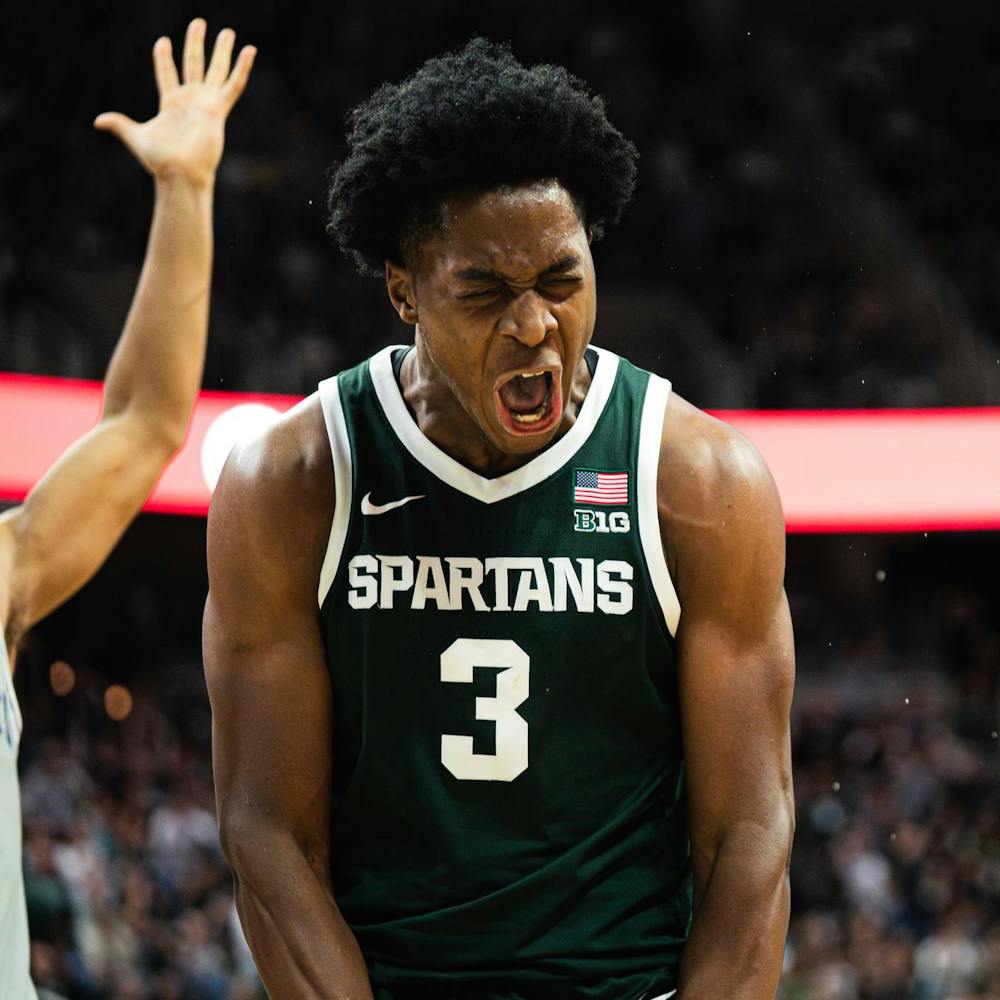By Ken Chester
For The State News
While snow swirled outside East Lansing High School on Saturday evening, a warm atmosphere of diversity, tolerance and brotherhood filled the cafeteria inside.
"There are five words: Accept people as they are," said Tammam Alwan, president of MSU's Muslim Students' Association, introducing the evening's speaker.
It was MSA's second annual Diversity Dinner, where mostly members of MSU's Muslim community shared traditional food, prayed and discussed race, diversity and religion.
During the dinner's keynote speech, MSU visiting religion Professor Mohammad Khalil touched heavily on the subject of Muslim/non-Muslim community.
"My hope is that we can open up lines of communications between various Muslims, and between Muslims and non-Muslims," he said.
In harmony with Khalil's message, premedical freshman Garrett Nelson, who is Christian, attended the event because most of his friends are Muslim and he wanted to learn more about Islam.
"All their moral values are like mine," he said. "They believe in one God, they don't drink and they don't smoke, which is good. People don't know the truth about what they stand for."
Khalil told a parable to illustrate how Muslims should treat non-Muslims.
"The prophet (Muhammad) was anything but an isolationist," he said.
In a scene mirroring the post-Sept. 11, 2001 terrorist attacks experience of many American Muslims, the prophet's yard was continuously littered by a non-Muslim neighbor, Khalil said.
One day, however, the prophet didn't find any trash on his lawn and knew something was amiss. He went to his neighbor's home, found that he had fallen ill and nursed him back to health, Khalil said.
"If we expect God to forgive us, we must forgive those who've wronged us," he said.
Khalil even urged MSA members to help construct, within three years, a memorial to slain civil rights leader and Muslim Malcolm X.
He quoted Malcolm X, describing his dramatic change of heart upon returning from his pilgrimage to Mecca: "Since I learned the truth in Mecca, my dearest friends have come to include all kinds — some Christians, Jews, Buddhists, Hindus, agnostics and even atheists. … My friends today are black, brown, red, yellow and white!"
Malcolm X lived on the outskirts of East Lansing as a child because blacks were not allowed to live within the city limits, Khalil said.
His father was even murdered in Lansing by a group of white supremacists, Khalil said. But there is only one small Michigan historical marker noting his presence.
Since Islam is the second-largest religion in the world, diversity also is promoted within the Muslim community, said physiology junior Soud Sediqe.
He said increased education about religion may prevent war.
"A lot of the things happening in the world are because of our ignorance," Sediqe said. "We need to open our eyes."
Even within the Muslim community, there is sometimes racism, but race distinctions have no place in Islam, Khalil said.
"There is no difference between whites and blacks; it is piety that matters," he said.
Furthermore, even though men and women are different, they play an equally important role in the Muslim community, he said.
Khalil, who also is a doctoral candidate in Islamic Studies at University of Michigan, said it requires a close look of Islam to avoid misjudging the faith.
"To my mind, it is how serious we get about carefully analyzing Islam that will determine whether we view it as a religion of peace or a religion of violence," he said.
"I believe that people throughout the world have more in common than they may care to admit, and it is this commonality that must be highlighted as we work toward preventing a clash of civilizations."



